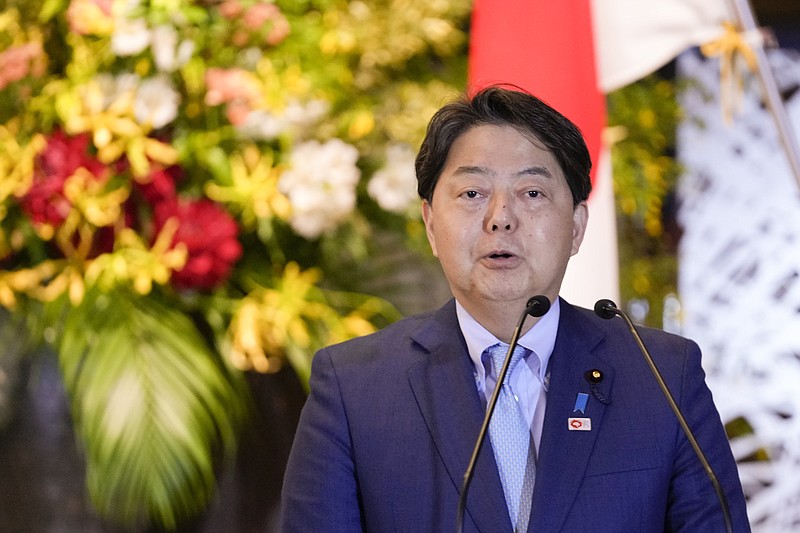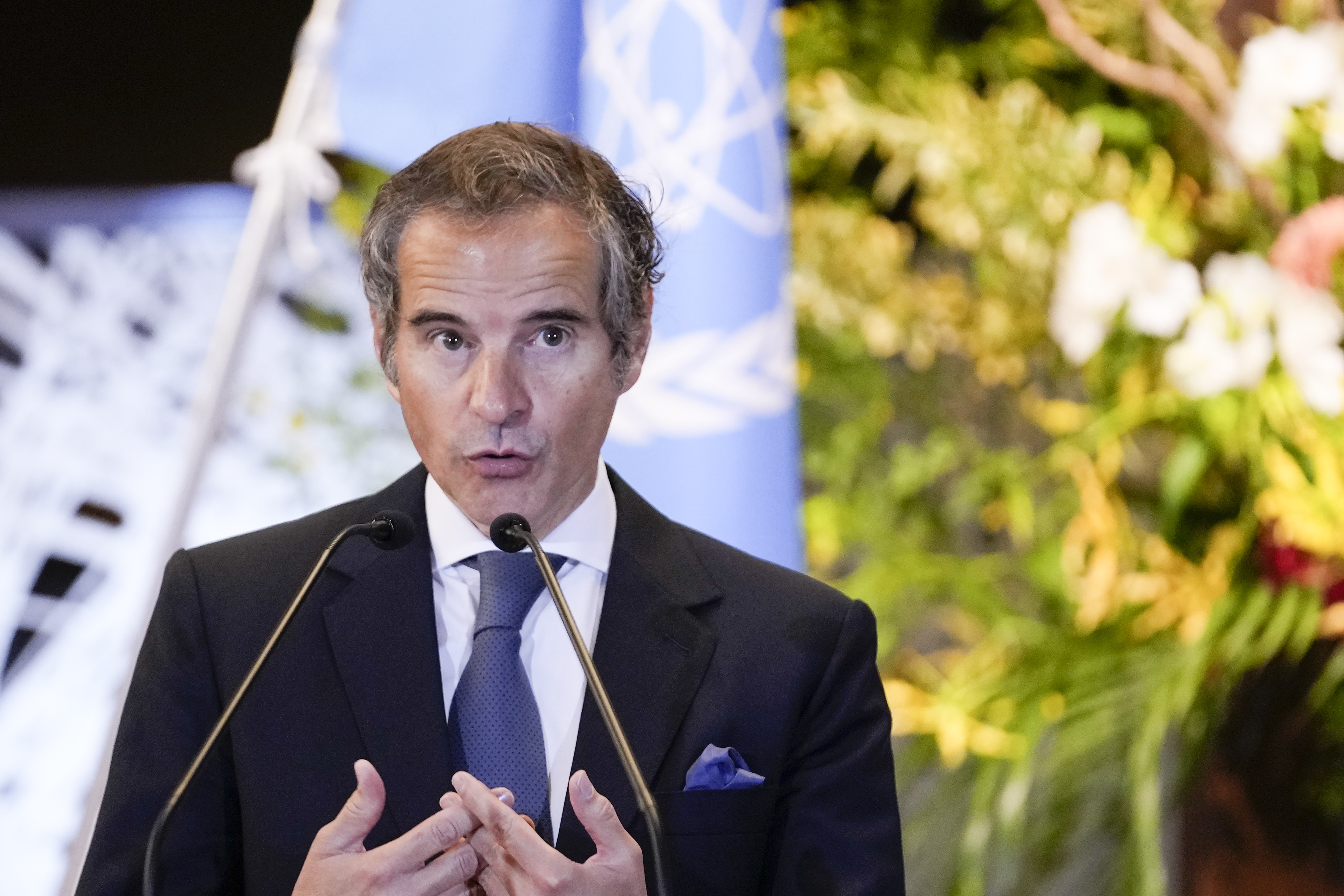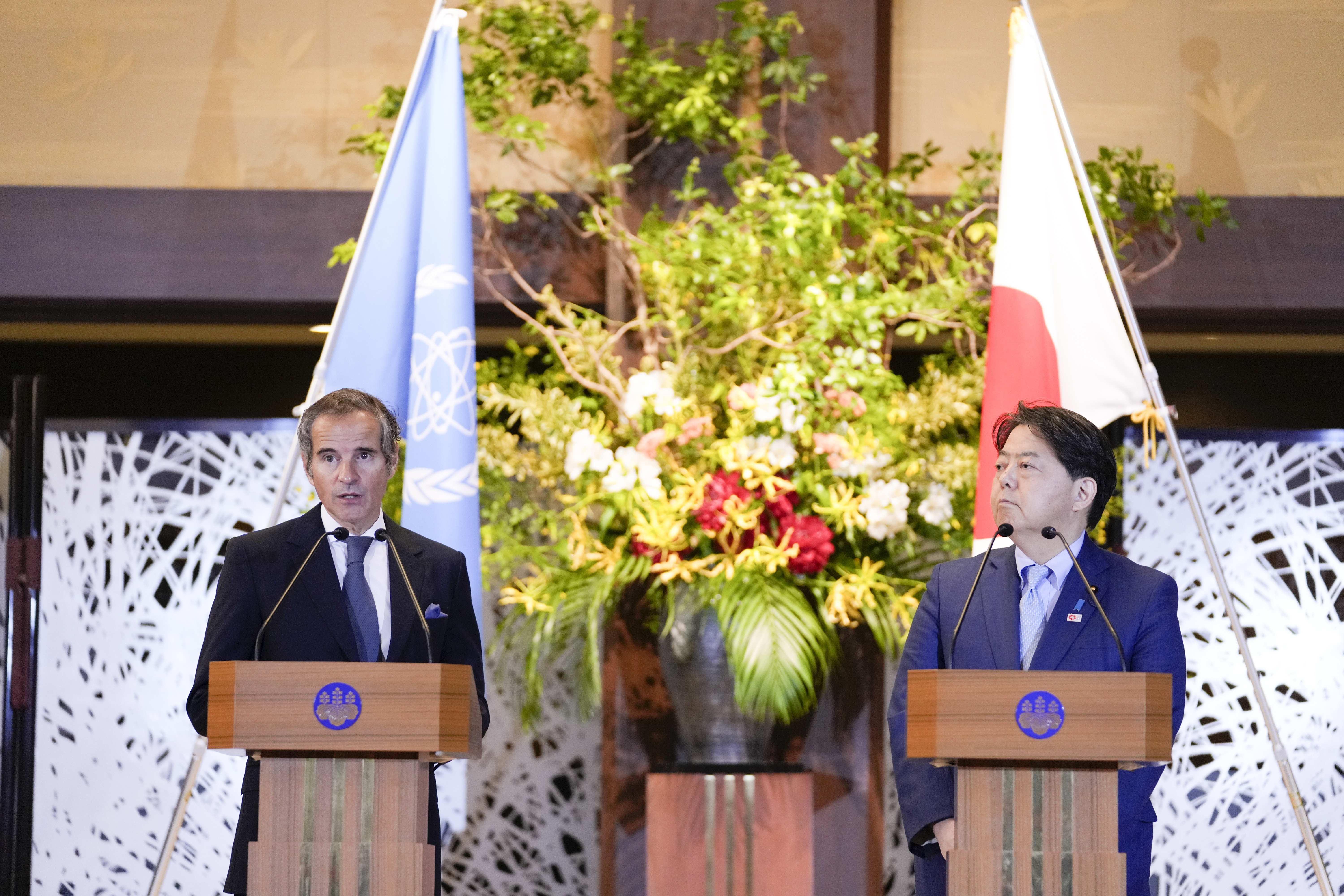TOKYO -- Japan announced Thursday that it will donate $2.1 million to the International Atomic Energy Agency for its efforts to ensure the safety of Ukrainian nuclear facilities that have come under Russian attack.
Foreign Minister Yoshimasa Hayashi unveiled the pledge after meeting with IAEA Director General Rafael Grossi, who is visiting Japan for talks with officials and to visit the tsunami-wrecked Fukushima nuclear plant.
The IAEA has sent experts to Ukraine's Chernobyl Nuclear Power Plant, which was occupied by the Russian military for five weeks, and to another plant in southern Ukraine.
Grossi, who led the two missions, said earlier this week that the IAEA plans to send another safety mission to Chernobyl in the coming weeks at the request of the Ukrainian government.
Hayashi said Japan is funding "the urgently needed dispatch of IAEA experts and necessary equipment" for the Ukrainian facilities.
"Russia's attacks on Ukrainian nuclear facilities are absolutely impermissible," Hayashi said. "Japan, which suffered the Fukushima Daiichi nuclear accident, condemns the acts in the strongest terms."
Japan quickly joined the United States and Europe in imposing sanctions against Russia, while providing financial and humanitarian support for Ukraine, in part because of concerns that Moscow's invasion could embolden China's growing assertiveness in East Asia.
Grossi, who had a two-hour tour of the Fukushima Daiichi complex earlier Thursday, praised its "remarkable progress" since two years ago when he last visited the plant, despite difficulties caused by the pandemic.
He visited facilities at the plant related to its planned release of treated radioactive water into the sea and reiterated the IAEA's commitment to provide long-term support for Japan to ensure the release meets international safety standards and reassure local communities and neighboring countries voicing safety concerns.
Japanese nuclear regulators on Wednesday approved the water discharge plan submitted by the plant's operator, Tokyo Electric Power Company Holdings, saying the methods are safe and risks to the environment are minimal.
Japan announced last year plans to release the wastewater after treatment and dilution beginning next year as a necessary step for the plant's decommissioning. Water used to cool the damaged cores of three reactors has leaked continuously and is stored in hundreds of tanks.



